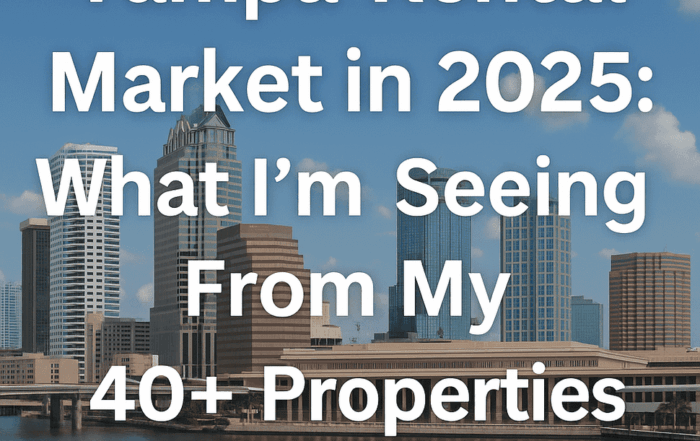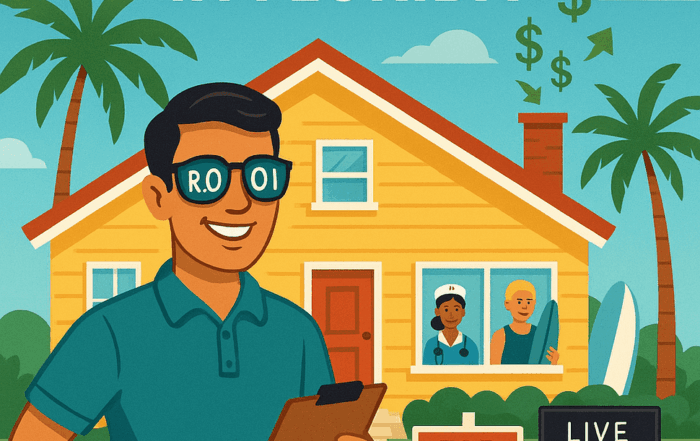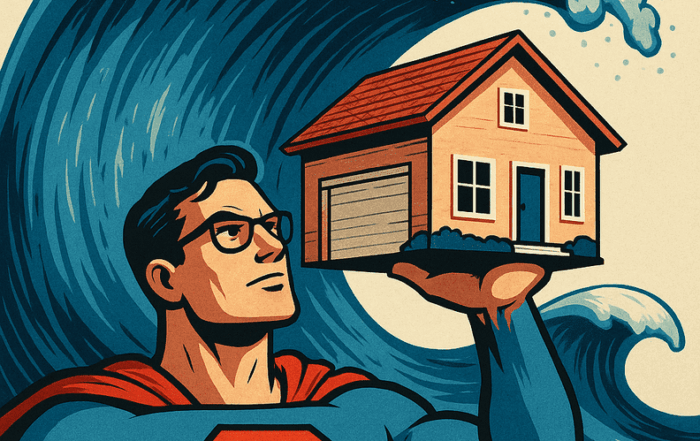
Investing in Mobile and Manufactured Homes: A Comprehensive Guide for Cash Flow and Equity
Investing in mobile and manufactured homes can be an intriguing and potentially lucrative option for real estate investors, especially those looking for strong cash flow opportunities. However, like any investment, there are pros and cons that must be carefully considered. This article aims to provide an in-depth look at the various types of mobile and manufactured homes, their potential for cash flow, equity growth, and financibility, as well as real-world investor experiences with each type.
The Appeal of Mobile and Manufactured Home Investments
Mobile and manufactured homes offer a unique entry point into real estate investing, particularly for those with limited capital. These types of homes often come with a lower purchase price than traditional single-family homes, making them more accessible to new investors. Additionally, they can provide strong cash flow due to favorable rent-to-cost ratios, especially in markets where affordable housing is in high demand.
However, these benefits come with specific challenges. Mobile homes, particularly those that are older or not on owned land, can depreciate over time, limiting long-term equity growth. Financing can also be a hurdle, as many traditional lenders are hesitant to finance older mobile homes or those that don’t meet certain standards.
As someone who has been investing in real estate for 20 years, I’ve seen firsthand the potential and pitfalls of mobile home investments. Despite my extensive experience, I’ve only done several mobile home deals, and I’ve never been able to turn them into successful long-term transactions—especially when the lot isn’t owned. My advice is to consider mobile homes as short-term investments, and only if you own the land. Otherwise, the challenges can outweigh the benefits.
To help investors make informed decisions, let’s break down the pros and cons of each type of mobile and manufactured home in terms of cash flow, equity, and financibility.
Single-Wide Mobile Homes
Pros:
- Cash Flow: Single-wide mobile homes typically offer good cash flow due to their lower purchase prices and moderate rental rates. Investors can often achieve a decent return on investment, especially in areas with high demand for affordable housing.
- Equity: Equity growth is limited, as these homes tend to depreciate over time, particularly if the land is not owned. This makes them less attractive for long-term wealth building.
- Financibility: Financing options for single-wide mobile homes are often limited. Traditional lenders may be reluctant to finance these homes, especially if they are older or not permanently affixed to land. Investors may need to rely on cash or private financing.
Cons:
- Cash Flow: While cash flow can be strong initially, it may be impacted by higher turnover rates and maintenance costs. Single-wides are often seen as less desirable by tenants, which can lead to vacancies and additional expenses.
- Equity: Depreciation is a significant concern with single-wide mobile homes. Unlike traditional real estate, these homes are more likely to lose value over time, especially if they are not well-maintained or located in less desirable areas.
- Financibility: The limited availability of financing options can make it difficult to leverage these investments or sell them to future buyers, restricting potential exit strategies.
Investor Experience: “I bought my first single-wide as a low-cost entry into real estate investing. It cash flows decently, but I’ve found that the maintenance costs and tenant turnover are higher than I anticipated. While it’s not a home run, it’s been a good learning experience and has provided steady, albeit modest, returns.” – Sarah T., Tampa, FL
Double-Wide Mobile Homes
Pros:
- Cash Flow: Double-wide mobile homes tend to generate higher rental income compared to single-wides, thanks to their larger size and greater tenant appeal. They strike a good balance between cost and rental income, making them a popular choice for investors.
- Equity: These homes hold their equity better than single-wides, particularly if the land is owned. Double-wides are more likely to appreciate over time, especially in stable or growing markets.
- Financibility: Financing a double-wide mobile home is generally easier than financing a single-wide, particularly if the home was built after 1976 and meets HUD standards. This makes them a more attractive option for investors looking to scale their portfolios.
Cons:
- Cash Flow: The initial purchase price of a double-wide is higher than that of a single-wide, which can reduce immediate cash flow. Additionally, maintenance and repair costs are typically higher due to the larger size of the home.
- Equity: While double-wides hold equity better than single-wides, they still may not appreciate as much as traditional single-family homes, particularly in slower markets.
- Financibility: While financing is more accessible than with single-wides, it’s still more challenging than securing a mortgage for a site-built home. Investors may face higher interest rates or more stringent loan terms.
Investor Experience: “Investing in double-wides has been a great move for me. The units are more attractive to tenants, leading to lower vacancy rates. I also secured traditional financing, which made scaling my investments easier. The cash flow has been solid, and the appreciation has been better than I expected, especially since I own the land.” – Michael R., Lakeland, FL
Manufactured Homes (Post-1976)
Pros:
- Cash Flow: Manufactured homes built after 1976 are subject to HUD standards, which means they are often better constructed and more durable than older mobile homes. This results in consistent cash flow, especially if the home is located on owned land and well-maintained.
- Equity: These homes have better equity growth potential than older mobile homes. They can appreciate in value, particularly in desirable locations where land values are rising.
- Financibility: Post-1976 manufactured homes are easier to finance than older mobile homes. They qualify for FHA, VA, and conventional loans, making them accessible to a broader range of buyers and investors.
Cons:
- Cash Flow: While the cash flow is generally strong, the initial investment can be higher than that of older mobile homes or single-wides. This may reduce immediate returns until the investment is fully paid off.
- Equity: Although these homes appreciate more than older mobile homes, their equity growth can still be slower compared to site-built homes, depending on market conditions.
- Financibility: Financing is more accessible, but it may still come with higher interest rates or stricter terms compared to traditional mortgages for site-built homes.
Investor Experience: “Post-1976 manufactured homes have been a game-changer for my portfolio. The fact that they’re easier to finance and insure made it simple to grow my investment. These homes attract long-term tenants, and the equity growth, while slower than traditional homes, is still a nice bonus. I definitely recommend focusing on these if you’re serious about mobile home investing.” – Janet M., Orlando, FL
Modular Homes
Pros:
- Cash Flow: Modular homes often generate strong cash flow due to their larger size and high quality, which are appealing to tenants. They offer rental rates comparable to site-built homes, making them a strong income-producing asset.
- Equity: These homes appreciate similarly to site-built homes, providing better long-term equity growth compared to mobile homes. They are often treated as real property, which enhances their value over time.
- Financibility: Modular homes are treated like traditional homes for financing purposes, which means they are eligible for conventional mortgages. This makes them an attractive option for investors looking for long-term stability.
Cons:
- Cash Flow: The initial cost of a modular home is higher than that of mobile or manufactured homes, which can reduce cash flow until the investment is recouped.
- Equity: While they appreciate well, the higher initial investment may be a barrier for some investors, particularly those with limited capital.
- Financibility: Few cons here, but costs associated with permanent foundations and installation can add to the overall investment.
Investor Experience: “My experience with modular homes has been fantastic. They appreciate like site-built homes and are much easier to finance. The rental income is strong, and I’ve had no trouble finding quality tenants. The initial cost was higher, but the return on investment has made it worthwhile.” – Dave L., Sarasota, FL
Park-Owned Homes
Pros:
- Cash Flow: Park-owned homes can provide strong cash flow, especially since the initial investment is typically low. Rent from tenants, coupled with the low cost of the mobile homes themselves, can result in high returns.
- Equity: Equity growth is very limited with park-owned homes, as the investor does not own the land, and the mobile homes themselves tend to depreciate over time.
- Financibility: Financing options for park-owned homes are limited, as traditional lenders are often unwilling to finance properties where the land is not owned. This can lead to investors needing to use cash or private financing options.
Cons:
- Cash Flow: While cash flow can be high, it is often offset by the need to pay lot rent and other park fees, which can cut into profits. Additionally, changes in park management or rules can impact your investment.
- Equity: The lack of land ownership means that the homes will not appreciate in value, and they are likely to depreciate, reducing the long-term value of your investment.
- Financibility: The difficulty in securing financing makes it harder to scale investments or sell the property later on. Investors are often limited to buyers who can pay cash or secure private financing.
Investor Experience: “Owning park-owned homes has been a mixed bag for me. The cash flow is decent, especially since the initial investment is low. However, the lack of equity growth and the constant worry about rent increases and park management changes make it a bit stressful.
Triple-Wide Mobile Homes
Pros:
- Cash Flow: Triple-wide mobile homes offer high rental rates due to their larger size and additional amenities. This can lead to strong cash flow, especially in markets where larger rental properties are in demand.
- Equity: These homes hold their value better than single or double-wides, particularly if the land is owned. They are more likely to appreciate over time and can be a solid long-term investment.
- Financibility: Easier to finance than single or double-wides, triple-wides are often considered more desirable by both lenders and tenants, making them a stable option for investors.
Cons:
- Cash Flow: The higher purchase price and increased maintenance costs can eat into the cash flow, especially in the early years of the investment.
- Equity: While these homes hold their value better than smaller mobile homes, they still may not appreciate as much as traditional homes, particularly in less competitive markets.
- Financibility: Although financing is more accessible, it still might not be as favorable as traditional mortgages for site-built homes. Investors may face higher interest rates or stricter loan terms.
Investor Experience: “Triple-wide mobile homes have been a great addition to my portfolio. The rental income is higher due to the space and amenities, which tenants love. Financing was easier to secure, and the homes hold their value better than I expected. I’m happy with the balance between cash flow and equity growth.” – Richard S., Clearwater, FL
Tiny Homes (on Wheels)
Pros:
- Cash Flow: Tiny homes can generate good cash flow, especially in niche markets like vacation rentals or eco-friendly communities. Their low cost of entry makes them accessible, and they can be moved to different locations as needed.
- Equity: Limited equity growth potential, as these homes are often considered more of a novelty or temporary solution rather than a long-term investment. They tend to depreciate over time.
- Financibility: Financing options are limited for tiny homes, as they are often classified as personal property rather than real estate. Investors may need to rely on cash or private financing.
Cons:
- Cash Flow: While there’s potential for strong cash flow, especially in the short term, the niche market can limit tenant appeal and rental opportunities.
- Equity: Tiny homes depreciate quickly, and their limited lifespan can make them a less attractive long-term investment.
- Financibility: The lack of traditional financing options can make it difficult to scale investments or sell to future buyers, restricting exit strategies.
Investor Experience: “I jumped on the tiny home trend, and while the cash flow has been solid, especially as short-term rentals, the niche market does limit my tenant pool. Financing was tricky, and I’m not sure how these will hold up in the long run. Still, they’ve been a fun and profitable experiment.” – Jessica H., Tampa, FL
RV/Motorhomes (Used as Permanent Residences)
Pros:
- Cash Flow: RVs can provide good cash flow in areas with high demand for temporary or seasonal housing, such as vacation destinations or areas with a transient workforce. They are relatively low-cost to purchase and can be easily moved.
- Equity: RVs do not typically appreciate in value and are considered depreciating assets. They are more akin to vehicles than traditional real estate.
- Financibility: Financing is usually limited to personal or vehicle loans, which may come with higher interest rates and shorter terms compared to traditional mortgages.
Cons:
- Cash Flow: While they can generate good cash flow in certain markets, RVs are highly dependent on location and seasonality, which can lead to inconsistent income.
- Equity: RVs depreciate rapidly, leading to a decline in value over time. This makes them a less attractive option for investors looking to build long-term equity.
- Financibility: The limited financing options and the fact that they are not considered real estate can make it difficult to secure favorable loan terms or to leverage the investment.
Investor Experience: “I invested in a couple of RVs as permanent residences in a popular vacation area. The returns have been good during peak seasons, but the off-season can be tough. Depreciation is a concern, and financing options were limited, so I had to buy them outright. It’s a niche market, but it works if you know what you’re getting into.” – Tom F., Fort Myers, FL
Pre-HUD Mobile Homes (Pre-1976)
Pros:
- Cash Flow: These homes can offer high cash flow due to their low purchase price. Investors can often buy these homes at a significant discount, leading to strong rental returns if the market supports it.
- Equity: Very limited equity growth, as these homes are typically older and often in need of significant repairs. They tend to depreciate over time.
- Financibility: Financing options are extremely limited for pre-1976 mobile homes, as they do not meet HUD standards. Investors usually need to purchase these homes with cash or private financing.
Cons:
- Cash Flow: While the initial cash flow can be high, ongoing maintenance and repair costs can quickly eat into profits. Additionally, these homes may be less desirable to tenants, leading to higher vacancy rates.
- Equity: These homes depreciate rapidly and are unlikely to gain value over time. The lack of equity growth makes them a poor choice for long-term investment.
- Financibility: The inability to secure traditional financing for these homes limits both the purchase and resale opportunities, making them a riskier investment.
Investor Experience: “My experience with pre-1976 mobile homes has been challenging. The low purchase price was attractive, but the lack of financing options and the high maintenance costs quickly ate into my profits. These homes have taught me a lot, but I’m not sure I’d go this route again.” – Steve P., Brandon, FL
Container Homes (Mobile and Modular)
Pros:
- Cash Flow: Container homes can generate strong cash flow, particularly in markets where eco-friendly or unique housing options are in demand. They are often lower cost to construct than traditional homes, which can lead to higher profit margins.
- Equity: The market for container homes is still developing, so equity growth can be uncertain. However, in areas where they are popular, they can appreciate similarly to traditional homes.
- Financibility: Financing for container homes is available through specialized lenders, though it is less common than for traditional homes. Investors may need to look for niche financing options or use cash.
Cons:
- Cash Flow: While they can generate strong cash flow, the niche market may limit the pool of potential tenants or buyers, leading to longer vacancy periods.
- Equity: The long-term equity growth of container homes is still uncertain, as they are a relatively new concept in the housing market.
- Financibility: Financing options are limited, which can make it difficult to secure favorable terms. This may also impact the resale value of the homes.
Investor Experience: “I invested in a few container homes to cater to the eco-friendly market. They’ve been a hit with younger, environmentally conscious tenants, and the cash flow has been strong. However, getting financing was tough, and I’m still unsure about the long-term resale value. It’s a unique market, but one with potential if you’re willing to take the risk.” – Emily G., Miami, FL
Conclusion
Investing in mobile and manufactured homes presents a variety of opportunities and challenges, depending on the type of home and the market conditions. From single-wides and double-wides to modular and container homes, each option offers different advantages in terms of cash flow, equity growth, and financing options. However, they also come with specific risks that must be carefully weighed.
As someone who has been in the real estate investing business for 20 years, my experience has shown that while mobile homes can be profitable, they often require careful management and a strategic approach. I’ve personally found that mobile home investments can be challenging to sustain long-term, especially when the land is not owned. If you’re considering investing in mobile homes, I would recommend focusing on short-term gains and ensuring that you own the land to maximize your returns.
Whether you’re a seasoned investor or new to the market, understanding the pros and cons of each type of mobile home can help you make informed decisions and build a successful real estate portfolio. Remember to do your due diligence, assess the market conditions, and carefully consider your financing options before diving into mobile home investments.
Call to Action: Click the ‘Get Started’ button to start receiving real estate education and access to our properties.
Pick your expert. Book your free 15-minute consult now. We are here to help!
Our Top Articles
Tampa Rental Market 2025: What to Expect in Q3 and Q4
Jorge Vazquez2025-07-24T01:38:07+00:00July 24th, 2025|Comments Off on Tampa Rental Market 2025: What to Expect in Q3 and Q4
Let’s talk landlord to landlord. Between the 40+ properties I personally own and the nearly 300 I manage with [...]
House Hacking in Florida: Live Free, Build Wealth, and Laugh at Your Mortgage
Jorge Vazquez2025-07-23T01:17:06+00:00July 23rd, 2025|Comments Off on House Hacking in Florida: Live Free, Build Wealth, and Laugh at Your Mortgage
House Hacking in Florida: Live Free, Build Wealth, and Laugh at Your Mortgage Let’s be honest—renting in Florida in [...]
Tampa Bay Times Featured: Jorge Vazquez on Turning Storm Damage into Investment Gold
Jorge Vazquez2025-07-22T01:15:43+00:00July 21st, 2025|Comments Off on Tampa Bay Times Featured: Jorge Vazquez on Turning Storm Damage into Investment Gold
After the Storm: Why Investors Are the Real Heroes in Florida’s Housing Comeback By Jorge [...]
Property Profit Academy:
✔ Learn to buy properties with little to no money down.
✔ Build a $10M portfolio step by step.
✔ Master strategies like BRRRR and house hacking.









